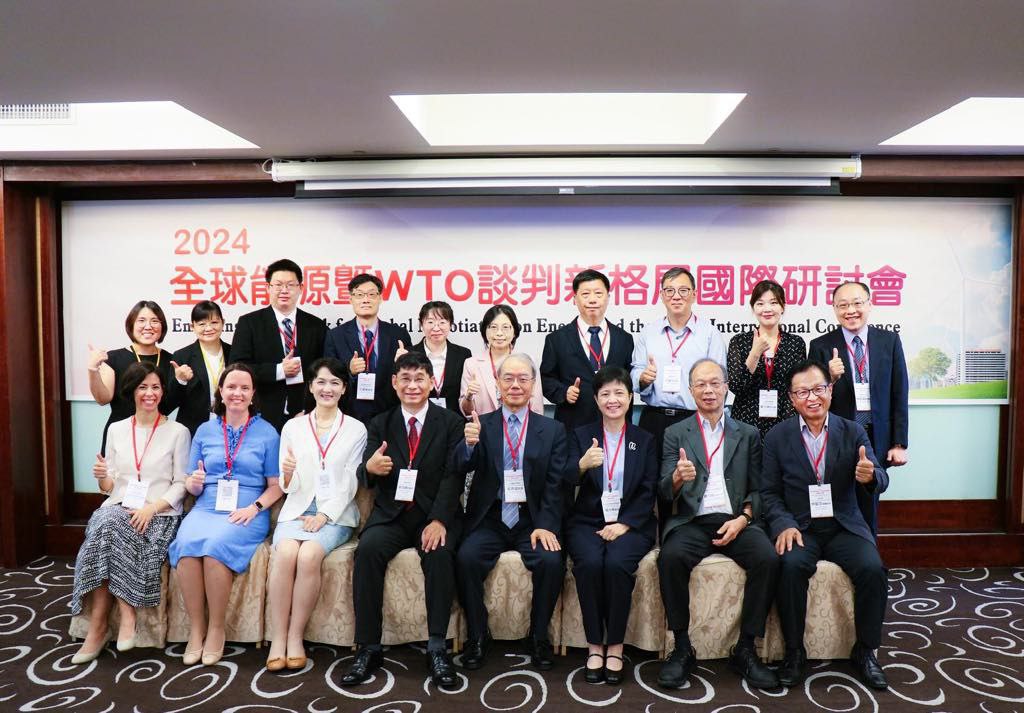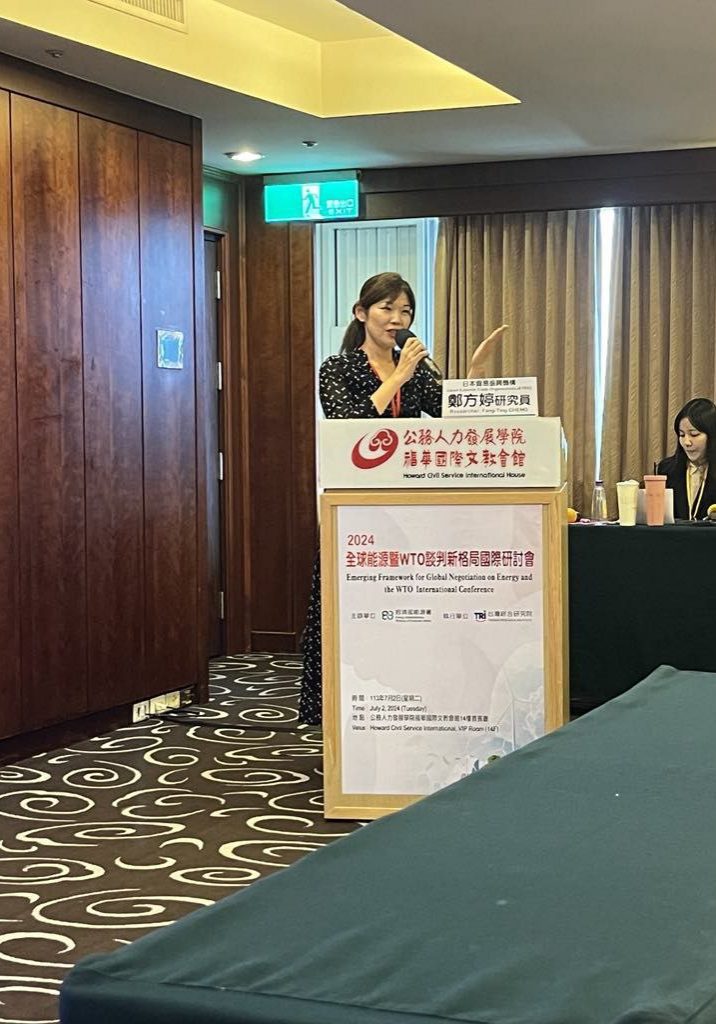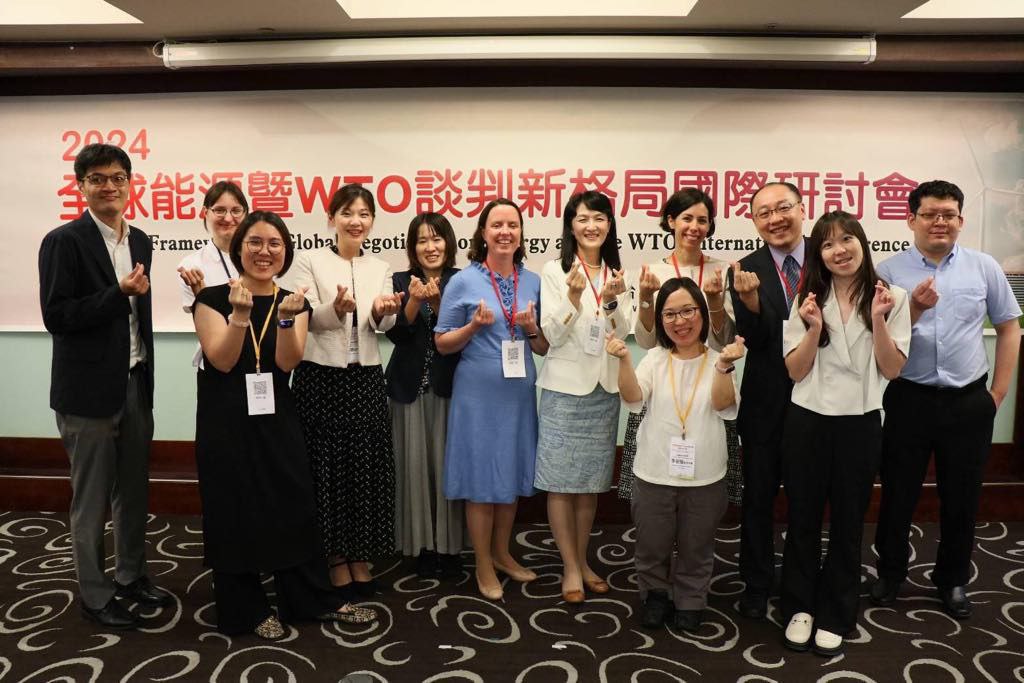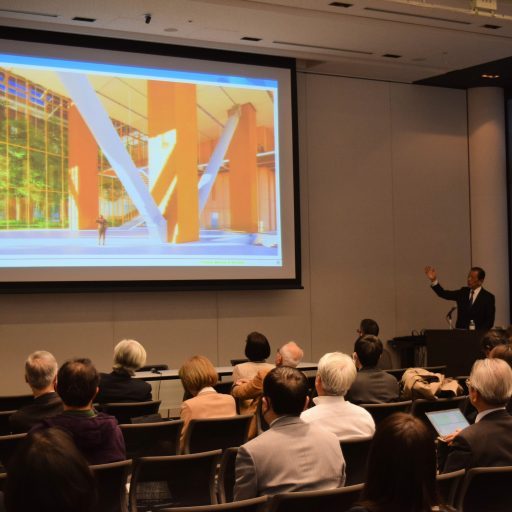Project Assistant Professor, GSID, Nagoya University
Alla OLIFIRENKO
Last week, Prof. Tomoko Ishikawa, Dr. Fang-Ting Chen, Dr. Wakako Ito and I from the H2Governance project visited Taiwan for a conference titled "Emerging Framework for Global Negotiation on Energy and the WTO". The conference was organized by the Energy Administration, Ministry of Economic Affairs of Taiwan and Taiwan Research Institute (TRI). TRI is a non-partisan specialized think tank focusing mainly on environmental, climate and energy policy and development.
The project members also had the unique opportunity to interview the representatives of the Japan-Taiwan Exchange Association and other local actors.
The trip was truly an enriching experience both professionally and culturally. As an assistant to the project, I had the privilege to witness firsthand the insightful discussions that took place, as well as to catch a glimpse of the vibrant and diverse culture of Taiwan. I cannot but complement the warm hospitality and impeccable execution of the conference by the organizers, the TRI staff.

In Panel 1 (moderator – Prof. Yao-Ming Hsu, National Chengchi University), Tomoko Ishikawa, the principal investigator of the H2Governance project, gave a keynote speech on the controversies that may arise between international economic law and the current multilateral frameworks on energy transition. She also touched upon various issues concerning the usage of unilateral economic sanctions against conduct that contributes to climate change. The speech was followed by a panel discussion. The panel included Ko-Ming Michael Wei, a former Deputy Permanent Representative of Taiwan at the WTO, Kuei-Jung Ni, a professor at the National Yang Ming Chiao Tung University School of Law, and Kai-Chih Chang, an assistant professor at the Soochow University School of Law.
In Panel 2 (moderator – Prof. Chien-Te Fan, National Tsing Hua University), Prof. Penelope Crossley (University of Sydney, Australia) gave a presentation about Australia’s experience in navigating the global energy market, rapidly changing amidst rising global political tensions, climate change, and the need for ensuring energy security. Prof. Ilaria Espa (Universita della Svizzera italiana, Switzerland) compared two differing – security-driven and sustainability-driven – approaches to energy policy. It seems that the latter, marked with focusing on environmentally friendly energy transition and experimental cooperation mechanisms, is gradually paving its way into the mainstream. The two keynote speeches were followed by a panel discussion. The second panel included San-Yi Yang, a professor at the Graduate Institute of International Politics, National Chung Hsing University; I-Ching Cheng, an assistant professor at the Tamkang University’s Department of Diplomacy and International Relations, and Fang-Ting Cheng from the H2Governance project.

As one can see, all three keynote speakers at the conference were women, still a rare sight at conferences like this. As a young female researcher, watching the speakers hold the raw, undivided attention of the audience for the whole duration of their presentations – not only with their profound expertise, which should go without saying, but with their powerful energy, curiosity, and contagious passion for research – inspired me like never before.
During the keynote and panel presentations and subsequent discussions, I found moments to reflect on the broader implications for Taiwan and Europe. Europe's recent efforts to secure energy amidst an ongoing war on the continent offer valuable lessons for Taiwan, which is navigating the regional disturbances in the East China Sea area. As a Ukrainian, I have felt for quite a while now that energy security, which is defined by the IEA simply as “the ready availability of essential energy services at an acceptable frequency and risk of interruption and at an acceptable economic cost”, is indeed a crucial part of national security. Hearing it from Prof. Crossley, a big authority on this idea, was very reassuring.
Another realization I had was that Taiwan’s unique legal status makes adopting any ready-made solutions unfeasible. With very limited access to international fora and public international agreements, they require tailor-made solutions, having relied a lot on soft law. This thought reverberated with an opinion expressed by Prof. Espa, that the future of sustainable energy trade lies with soft law and new experimental forms of international cooperation.
I wondered: if Taiwan has had to rely on soft international law and various informal instruments throughout its history, doesn't this, combined with its technological capabilities and the pressing need to ensure its own energy security, position it uniquely to lead in developing innovative international cooperation solutions?
Predicting the future of all variables, such as regional politics, the success of energy transition, and experimental energy instruments, is impossible. But the role of Taiwan is definitely something I want to monitor closely from now on.
As the conference concluded, there was a sense of optimism mixed with a sober understanding of the work that lies ahead. The path to a cohesive global energy trade framework is fraught with challenges, but there are promising signs of positive change.
Returning from Taiwan, I carry with me a wealth of knowledge and a renewed commitment to contributing to the discourse on energy security. The experience reinforced the importance of international dialogue and cooperation in tackling one of the most complex issues of our time.




